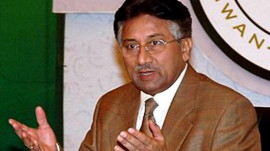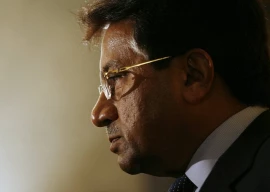
The Supreme Court’s decision to hold a former dictator in high treason, and uphold his death sentence, posthumously, has set the ball rolling. For many in the political circles, it is a bold and much-desired verdict, whereas there is no dearth of a constituency that begs to differ. But the fact that a four-member bench of the apex court under Chief Justice Qazi Faez Isa took up a review petition and set aside an earlier judgment of a high court in January 2020 that had declared “unconstitutional all actions taken by the government against Pervez Musharraf” by abolishing the 2019 verdict of death penalty handed down to the former military chief, has come not only as a surprise but with long-term consequences. The prime question doing the rounds is: will this judgment act as a precedent in stemming military interventions in the future?
Notwithstanding the exceptional ruling, in which the legal heirs of the former president did not show up to plead their side of the case, what will be debated for long are the thought-provoking remarks of Justice Athar Minallah who observed that “the judges who granted legal cover to Musharraf’s martial law should be tried in court.” This is what the civil society desired to hear from the jurisprudents, as it is the system under the nose of the judiciary that acts in collusion with the powers-that-be to legalise attempts of takeover by men on the horseback. The doctrine of necessity and the legal sanction for military rule off and on from the apex courts is sufficient as a referral.
The learned bench also found legal lacunas in the LHC decision, and castigated it for looking beyond the scope of the initial petition. As the superior judiciary is seized with Faizabad ‘sit-in’ and Zulfikar Ali Bhutto’s hanging cases, this decision hints at the mood of the Lords, too. It would be a great service to supremacy of public representation, rule of law and the constitution, if the practice of leaning towards the military junta comes to an end for all times to come. Pakistan’s armed forces have a constitutional role, and anything beyond that mandate is detrimental to their image and utility.
Published in The Express Tribune, January 11th, 2024.
Like Opinion & Editorial on Facebook, follow @ETOpEd on Twitter to receive all updates on all our daily pieces.



1731975305-0/Untitled-design-(40)1731975305-0-165x106.webp)
1731975060-0/Untitled-design-(39)1731975060-0-165x106.webp)











COMMENTS
Comments are moderated and generally will be posted if they are on-topic and not abusive.
For more information, please see our Comments FAQ